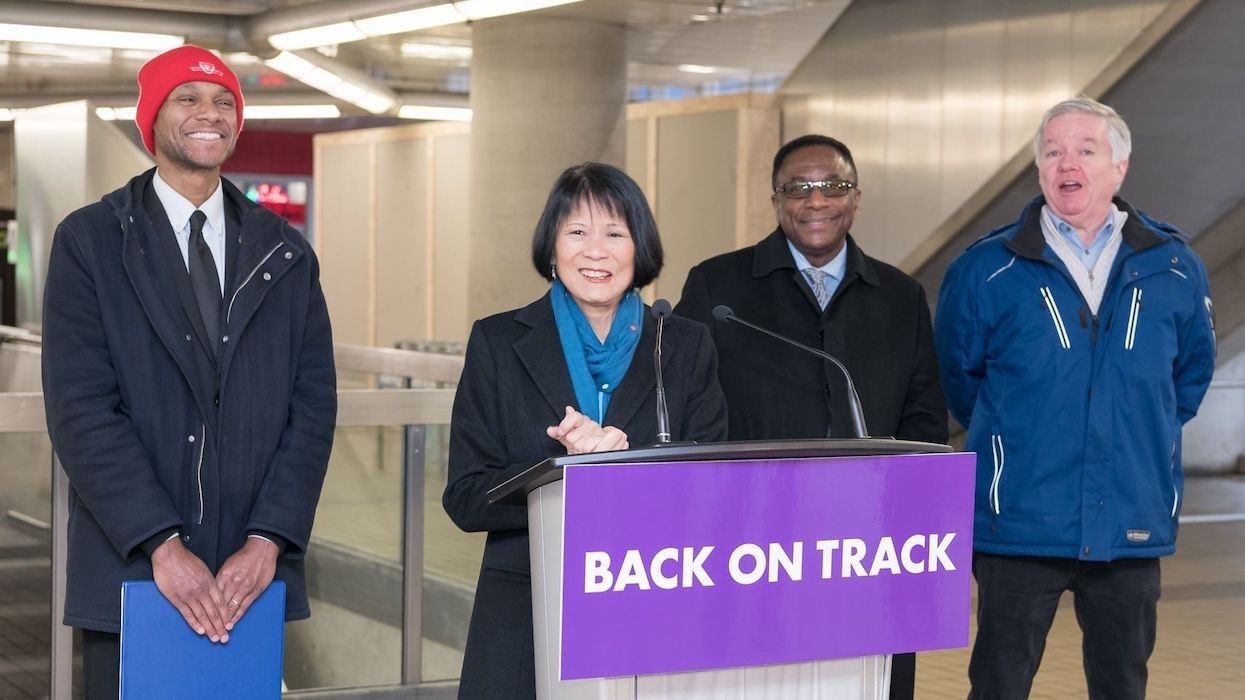After weeks of property tax-related fodder, and much criticism that a 10.5% hike to the residential rate is hasty and too drastic, Toronto Mayor Olivia Chow has proposed a lesser increase of 9.5%.
Chow made the case for a much more palatable 8% raise (which would be combined with a 1.5% increase for the city building levy) when she tabled her version of the 2024 budget on Thursday. She explained that this is in response to concerns aired by Toronto residents during the telephone town halls that were held between January 16 and 18.
“Through our extensive public consultation we heard that Torontonians understand that this year they are being asked to pay more for their city. We also heard that affordability is an ongoing concern for many. Reflecting this feedback, the operating budget I am presenting is based on a property tax increase of 8%, which amounts to about 80 cents a day for the average Toronto household,” wrote Chow in a letter prefacing her budget summary.
“The impact of this increase will be offset with property tax relief programs for qualifying lower income people and seniors. They will also qualify for water rebate and solid waste rebate programs.”
Chow also proposed a reduced multi-residential tax rate of 3.5% — “so that it is below the provincial threshold whereby landlords apply for above-guideline rent increases” — which is something she first floated when speaking at the Canadian Club of Toronto on Monday. At that time, she explained that she was acting on a recommendation from the Budget Committee.
As for Toronto’s jarring $1.8B operating shortfall, Chow noted that city staff have identified more than a half a billion dollars in efficiencies and offsets over the budget deliberations which wrapped up on January 26. Even so, she underlined that cuts alone aren’t enough to get the city out of its “financial mess” and commended the provincial government for their willingness to hash out a ‘new deal’ for the city.
“The Government of Canada has also stepped up,” Chow said. “The Prime Minister agreed to carry some of the costs of sheltering refugee claimants in the summer of 2023 and plans to do more.”
In addition to a reduction to both the residential and multi-residential property tax increases, Chow is proposing the following changes to the 2024 budget:
- Increased funding for the Community Partnership and Investment Program (CPIP);
- increased funding and support for housing initiatives like the Tenant Support program, Eviction Prevention Intervention in the Community (EPIC), the Toronto Rent Bank, RentSafeTO, and the Multi-Unit Residential Acquisition Program (MURA);
- increased funding for shelter drop-in programs;
- the addition of three Toronto Public Library Youth Hubs;
- increased funding for Parks, Forestry & Recreation with the focus on recreation services;
- increased Capital Budget with funds from the initial upload of Gardiner Expressway and Don Valley Parkway to invest in state of good repair;
- more funds for the advancement of the Scarborough Rapid Transit Busway;
- and the establishment of an ‘Emergent Budget Priorities’ funding from additional revenue identified as part of 2023 Supplementary Taxes above budget performance and revised estimates from final assessment growth.
- A Historic Property Tax Bump Looms In Toronto, Experts Worry It’s ‘Too Much, Too Quick’ ›
- City Official Says Toronto Will See A “Substantial” Property Tax Hike — Here’s Why ›
- Chow Pushing To Lower Multi-Residential Tax Hike To Get Ahead Of AGIs ›
- Toronto Budget Proposes 10.5% Property Tax Hike For Residential Properties ›
- Op-Ed: Historic Property Tax Hike Would Harm The Middle-Class, Renters, And Small Businesses ›
- Toronto Passes 9.5% Tax Hike For Residential Properties ›
- Updates To RentSafeTO Include More Inspections, Steeper Fines ›





















